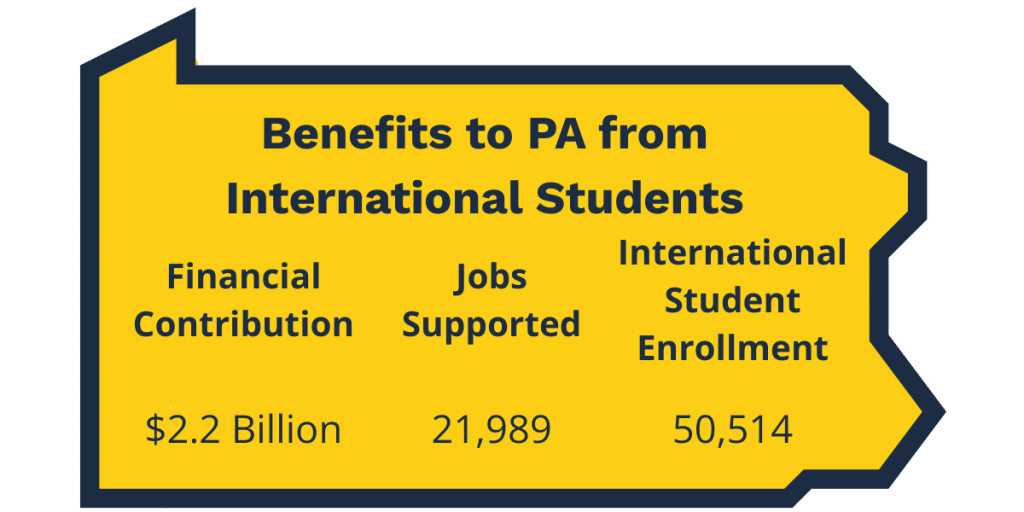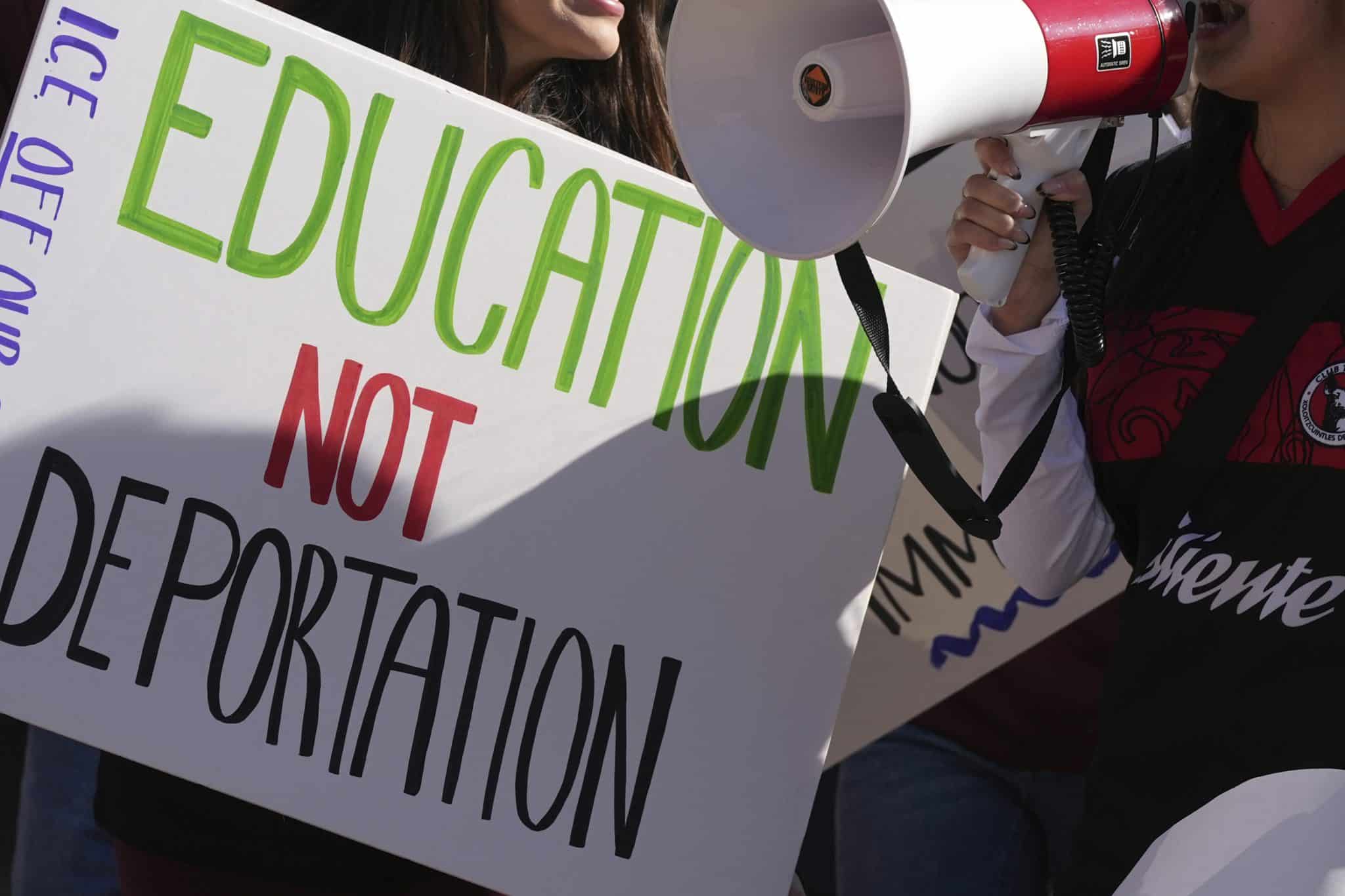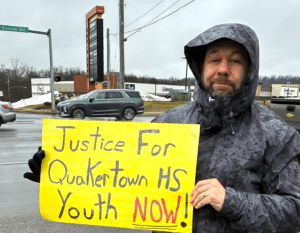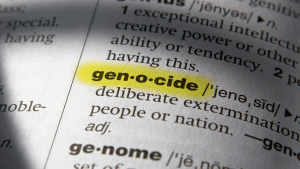As colleges prepare for back to school, local immigration experts say the international student community faces increased uncertainty this fall due to the Trump administration’s recent policies targeting their visa status, travel abilities, and political speech.
Matthew I. Hirsch is a partner at Solow, Hartnett, and Galvan law firm and an adjunct professor at Widener University’s Delaware Law School. He frequently speaks at schools throughout the region.
Hirsch recalls that he was delivering a presentation for international graduate students on April 4 this year, the same day many were notified by email that their Student and Exchange Visitor Information System (SEVIS) records were terminated.
“People started to run for the hills,” Hirsch said. “People were completely traumatized.”
The termination of SEVIS records, along with student visas, was part of a greater push by the Trump administration this Spring which resulted in more than 4,700 international students losing their permission to study in the United States, according to the Associated Press. The Department of Homeland Security said it cross-referenced visa records with FBI databases to identify students who had been arrested, even if they were never charged with a crime or charges were dropped.
The actions were challenged in court and later overturned with many visas and records reinstated. The new student visa application process, which was temporarily halted in May, was also reopened, with applicants’ social media accounts subject to government review, the AP reported.
Trouble with travel
Following the visa confusion, President Trump issued a proclamation restricting travel to and from 19 countries effective June 9.
Students whose countries of origin appeared on the restricted travel list became “land locked,” Hirsch said– unable to leave the U.S. because they feared they would not be allowed back in.
He said he also received phone calls from professors who traveled abroad and were concerned about returning home, as well as citizens with non-citizen spouses who feared being separated.
Ricky Palladino, partner at Palladino, Isbell, and Casazza of Philadelphia, a firm which specializes in multiple areas of immigration law, said he’s also received increased phone calls from foreign students seeking legal guidance on whether or not to return home.
“Before the travel ban, this is not something we traditionally had to counsel F-1 students about,” Palladino said.
He estimates about 30-40% of his clients faced with the issue of whether to remain have chosen to leave the US, with many opting to study in Canada, Europe, or their home regions. He said the travel ban has also driven prospective students and their families away from beginning the application process.
Political backlash
Palladino said the second-most frequent issue he counsels his international student clients about is political speech.
He referenced the March 25 arrest of Tufts University student Rumeysa Ozturk.
“That was the one [arrest] that sent shock waves through international students,” Palladino said.
He added, “we were mentally preparing for enforcement and arrests of foreign students locally, it never made its way to Philadelphia to the extent we saw in Boston.”
Hirsch said he also encountered apprehension from students regarding social media speech as well as attendance at sit-ins and demonstrations.
“If the game plan was to scare people, it worked,” he said.
READ: Most Americans Disapprove of Trump’s Treatment of Colleges, a New AP-NORC Poll Finds
Schools prepare for change
Several colleges contacted by the Bucks County Beacon indicated it’s too early to determine the level and impact of international student decline.
“Given that our deadlines fall between November and January, the incoming class applied before the current visa issues began,” said Cara Anderson, media relations specialist for Swarthmore College.
Anderson said while it’s possible enrollment numbers will still fluctuate, Swarthmore anticipates little change.
Pennsylvania State University’s Senior Director of Public Relations Wyatt DuBois said the school is anticipating a decline in foreign student enrollment for “a number of reasons.”
DuBois said Penn State will know more later this fall when a detailed census report is generated. He noted:
“Penn State remains committed to recruiting and enrolling a robust class of international students. Their presence on campus, in and out of the classroom, greatly enriches the Penn State experience for all, with the diversity of thought, culture, and experience that they bring with them.”
Bucks County Community College has not seen an increase in international students staying local for the summer, nor a change in F-1 visa applications, according to Daniel J. Kanak, Vice President of Marketing and Communications.
“This issue has not affected Bucks County Community College to the degree it might have affected other higher education institutions,” Kanak said.
“We have a relatively small population of international students, which has consistently been below 20 students per year for the past three years.” He noted that number is less than 1% of the student body.
Economic Ripples
Statistically, foreign students attending U.S. higher education institutions pay a high percentage of tuition out-of-pocket. According to the Institute for International Education’s Open Doors report for the 2022/23 academic year, 56.8% of international student tuition funding came from “personal and family” sources.
Palladino said he believes if the administration’s recent policies are not reversed, loss of revenue from foreign students could lead to increased tuition costs for American-born students across colleges and universities, and eventually, a negative ripple to the economy.
Early research from the Association of International Educators (NAFSA) estimates nationwide international enrollment could drop between 30-40% in fall 2025, representing a 15% drop in overall student population.

The decline could mean up to $7 billion in lost revenue for the United States economy, with Pennsylvania projected to lose $339,979,784, according to NAFSA.
“We have to ask ourselves, who benefits?” Palladino said.
“Who wins in these foolish situations? I think the answer is nobody.”
NAFSA recommends the State Department to provide expedited visa appointments for F-1 and M-1 students as well as J-1 exchange visitors, and to exempt the same group from the current travel bans.
When asked what he would say to current and prospective foreign students, Palladino said:
“I still do think that the United States is the greatest country in the world, and there is a lot of opportunity here, but now [international students] have to have the stomach for it. Because the United States government will not be rolling out the red carpet like it has in the past.”






